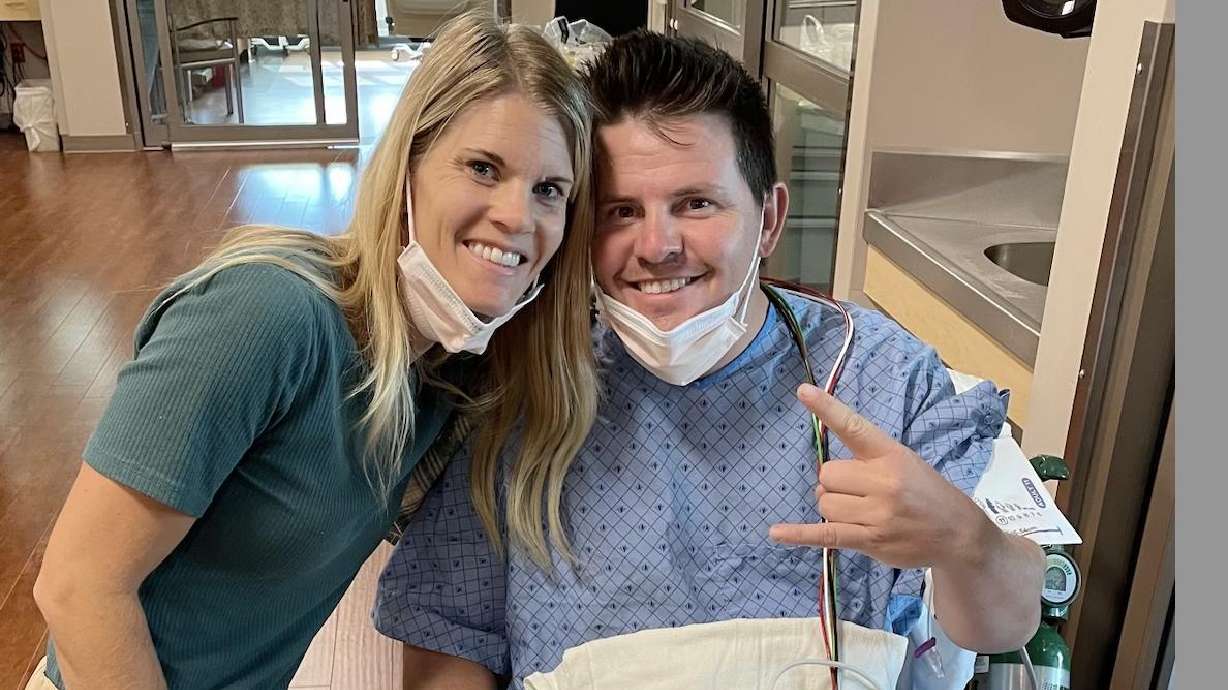HEALTH
Dave & Dujanovic: U. program seeks to counter depression by teaching teens to be mindful
Sep 10, 2019, 5:27 PM | Updated: Jun 16, 2022, 4:17 pm

Photo: Shutterstock
A new research study seeks to reduce the risk of recurring depression in teens by using mindfulness techniques — all without any medications.
The University of Utah is conducting a research study examining how mindfulness can help teenagers stay healthy and prevent depression relapse.
On Tuesday’s Dave & Dujanovic show on KSL, Dr. Scott Langenecker, who is a clinical neuropsychologist and is a professor of psychiatry at the University of Utah, spoke about the study.
Dr. Langenecker said the treatment boils down to talk therapy combining Eastern and Western medicine. He said the therapy is focused on teens in order to stop depression early.
Helping teens through depression
Langenecker said depression is a chronic, recurring illness, which includes habits, such as teens not engaging with their peers, with problem-solving, and with constructive thinking.
Co-host Dave Noriega said teens naturally go through mood swings in puberty, so, he asked, how do parents know when teens actually need professional help?
Langenecker said teens go through individuation, or development of self, in which they understand that they still fit into groups, such as with their peers and with family. Teens try to make it on their own but don’t have any experience with relationships, so they don’t know which interactions with others are healthy and which are not.
“The treatment focuses on them getting some experience and skills to manage interpersonal relationships,” Langenecker said.
“When things go wrong, teens have a tendency to panic,” he said. “And this treatment can help them say, I have got some tools in my toolbox and I’ve got some skills now and I can manage this.”
Rumination is a precursor to depression, Langenecker said.
It’s a passive, negative mindset in which people develop the habit of being stuck in their thoughts and disengaging from family and friends or spending a lot of time in their room or on social media.
“When you do that, you’re not solving any problems. You’re not engaging and moving forward in the world. So our treatment really is designed to teach teens better habits on how to manage stress and avoid avoidance,” Langenecker said.
Teaching kids mindfulness
Next, Dave asked, how do you get kids to settle down and be mindful?
“Teenagers love it,” Langenecker said. “Middle-schoolers even love it.”
He said there are innovative programs to teach kids to imagine an emotion without feeling it so intensely, and that’s what mindfulness does.
A young person lacks experience and can be overcome by an emotion, Langenecker said, but mindfulness teaches a teen to take a step back and say, “OK, that’s an emotion; it’s going to pass. What is that emotion telling me? How do I use that emotion to learn and move on?”
Co-host Debbie Dujanovic pointed out that teens and their parents are busy. She wanted to know how much time the program requires.
Langenecker said in total the program involves 20 visits — 20 to 25 hours over six months — for teens in the study. The treatment is free. The study involves an MRI scan. And the kids in the study get to keep the 3D model of their brains.
Cognitive testing is performed, which can provide accommodations in schools for kids having difficulty. Langenecker said researchers can help teachers and parents with the testing to assist the teen.
More to the story
To hear more about the research or how to help teens with depression, listen to Dave & Dujanovic below.
If you are interested in participating in the study or would like more information, please contact Dr. Scott Langenecker or Stephanie Pocius at 801-213-1087, 801-587-0113 or utahmend2lab@gmail.com.
If you or someone you know is in emotional distress and contemplating suicide, please call the National Suicide Prevention Hotline at 1-800-273-8255.











